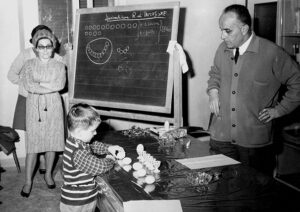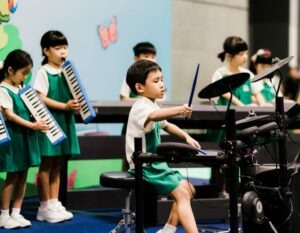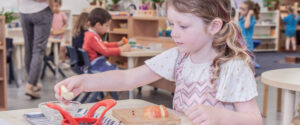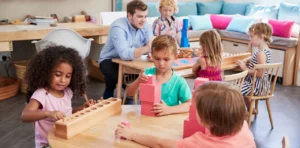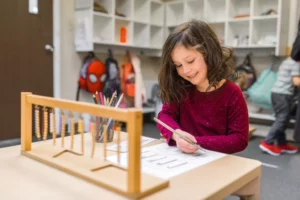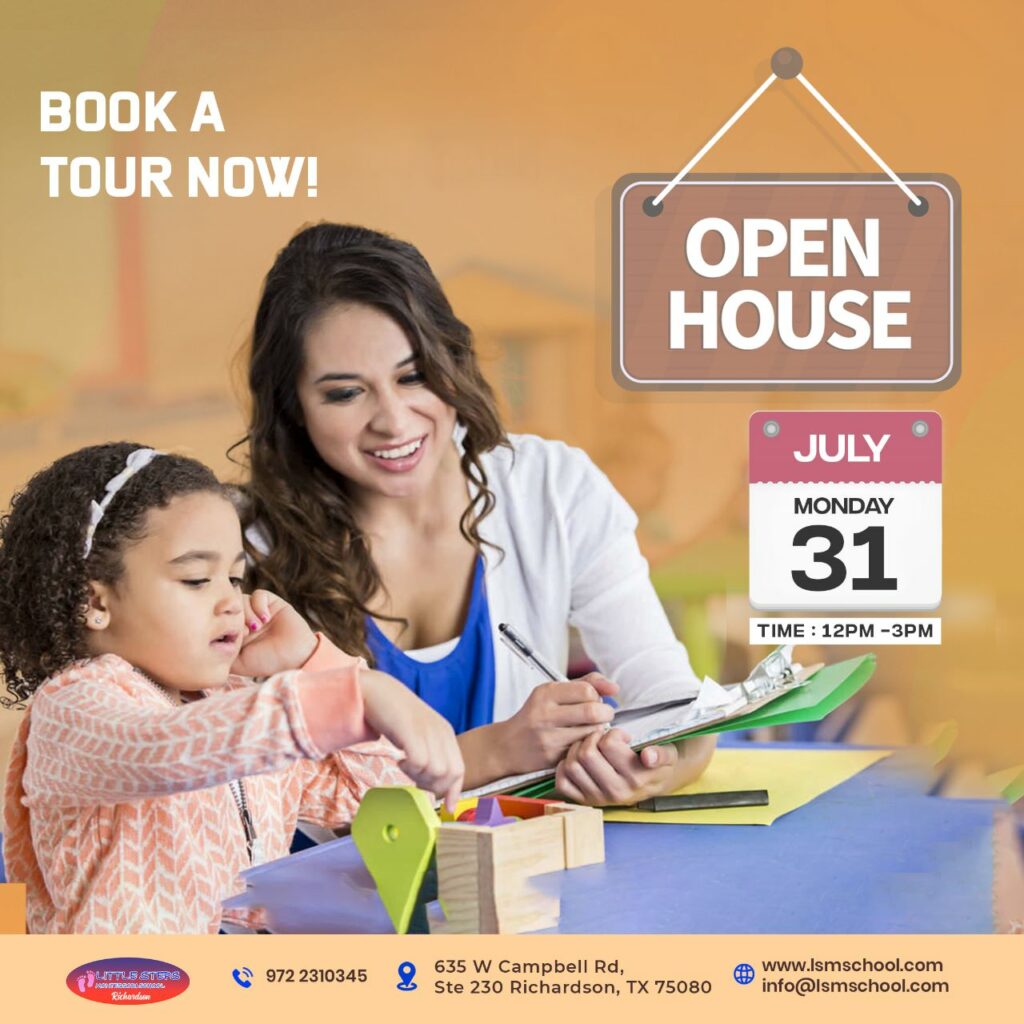The Montessori classroom is the embodiment of Maria Montessori’s philosophy. Known as the “prepared environment,” it presents a unique, child-centered arena that nurtures the holistic development of children. As we dive into the intricate details of this specially curated environment, let’s unearth the essential elements that make it a haven for learning.
Harmonious Layout: Architecture of Freedom
The layout of a Montessori classroom is meticulously designed to encourage exploration, independence, and freedom within limits. Low shelves with easily accessible materials, child-sized furniture, and defined workspaces foster an inviting atmosphere. The harmonious design induces a sense of order, promoting concentration and self-discipline.
Thoughtfully Curated Learning Materials
Montessori classrooms boast a selection of didactic materials crafted to ignite curiosity and support self-directed learning. The materials, arranged from simple to complex, concrete to abstract, cater to different developmental stages, reinforcing the core Montessori principle of following the child.
Three-Hour Work Cycle: Uninterrupted Learning
A distinguishing feature of the Montessori classroom is the three-hour work cycle. This uninterrupted time is a sacred period for children to delve deep into their work, fostering sustained attention, deep concentration, and the joy of discovery.
Multi-Age Groupings: Community of Learners
Montessori classrooms bring together children of varying ages within the same environment. This blend fosters peer-to-peer learning, leadership, empathy, and mutual respect – crucial elements in the social development of a child.
Role of the Montessori Guide
The teacher in a Montessori classroom assumes the role of a guide rather than a traditional instructor. They observe each child’s development, preparing and altering the environment to meet their changing needs. Their role is to facilitate the connection between the child and the learning materials, respecting the pace and interests of each individual child.
Connection with Nature
Nature and outdoor play are integral to the Montessori curriculum. Classrooms often extend into outdoor environments, offering opportunities for children to interact with nature, cultivate a love for the environment, and understand their role in preserving it.
The Prepared Environment: More than a Physical Space
While the physical arrangement is a prominent part of the prepared environment, it also encompasses psychological aspects such as freedom, order, and respect. It is an environment designed to meet the child’s developmental needs, providing them with the freedom to explore and learn at their own pace, developing a profound love for learning and intellectual curiosity.
Conclusion: The Montessori Classroom as a Catalyst for Holistic Development
The Montessori classroom, a meticulously prepared environment, provides a platform for children to develop cognitively, socially, emotionally, and physically. It respects each child’s individual learning style and pace, fostering independence, curiosity, and a lifelong love for learning. It stands as a testament to Dr. Montessori’s vision of education as an “aid to life.”


